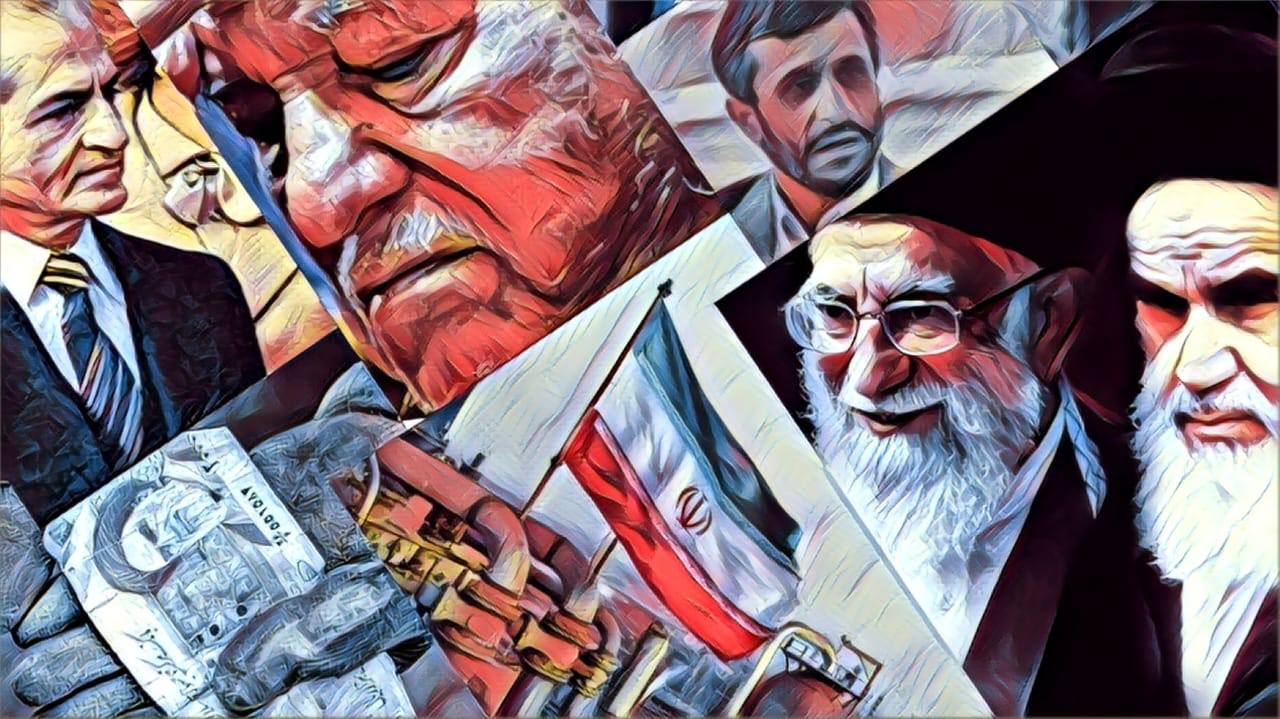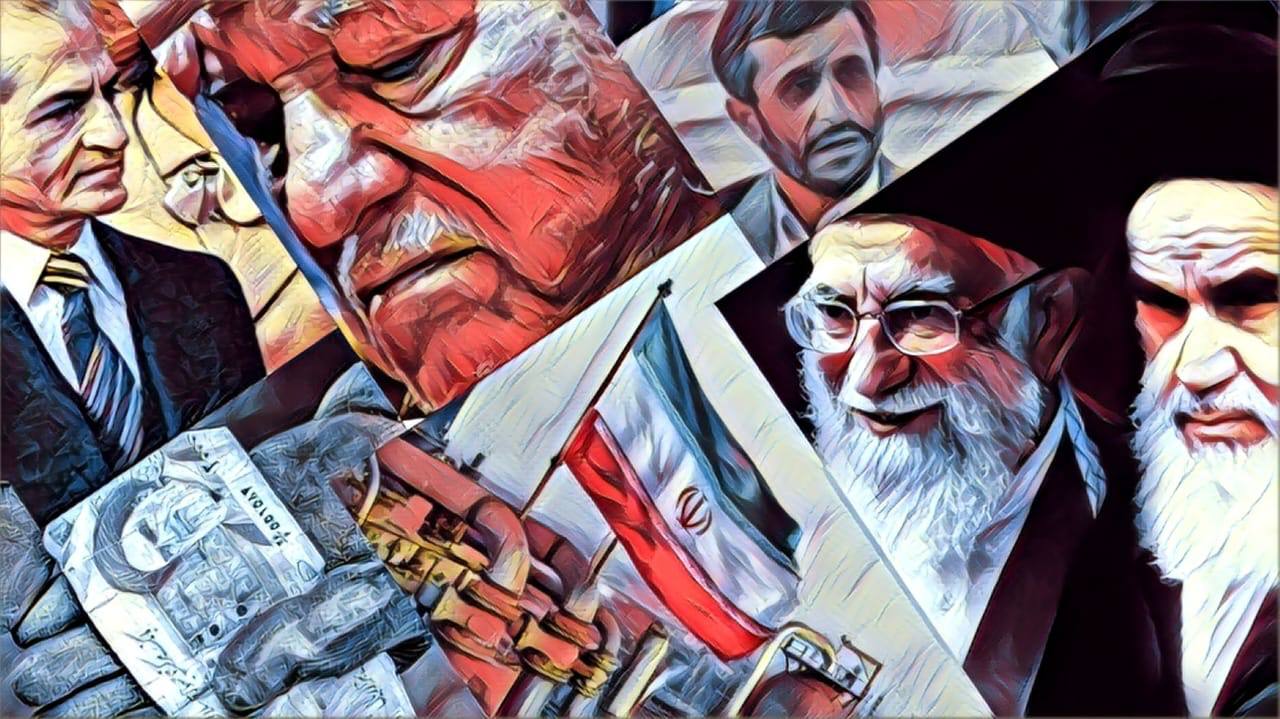Why Iran does not progress
Why Iran does not progress. Many experts believe that Iran has fallen behind the growth and development that has occurred globally in recent decades, a progress that has become an unattainable dream and impossible for Iranian citizens, and many hold the Islamic Republic responsible for the current situation.
In a two-part series, Iran Gate examines three main reasons for Iran’s lack of progress in the 19th, 20th, and ultimately the 21st centuries. Of course, all three reasons are rooted in the type of governance in Iran and do not significantly relate to the disposition of Iranian society. In the first part of this series, the obvious issues that have always been neglected by Iranian rulers were mentioned, followed by addressing the gaps in the governmental structure in Iran over the past century, focusing specifically on the deficiencies of the rulers.
The present report is the second and final part of this series, which elaborates on two other major obstacles to Iran’s development. These obstacles relate to the gaps in the dual structure-agent framework and naturally have led to the halt of the development process in the country.
Governance centered on conspiracy theories
Iran has never officially, according to accepted definitions, been a colony of any of the great powers in history. However, Iranians have fallen victim to the colonial policies of Western superpowers at various times. Many sociologists believe that this historical harm and humiliation by foreigners have led Iranians to immediately resort to what is called conspiracy theories when faced with phenomena they are ignorant of.
Naturally, Iranian rulers are no exception to this rule, from the first and second Pahlavi to the officials of the Islamic Republic, with numerous instances of their conspiracy-oriented approach evident in Iran’s contemporary history. History will never forget the fear Mohammad Reza Pahlavi had of Western conspiracies, especially from Britain and the USA.
Pahlavi caught in a dangerous theory
A review of the book ‘Answer to History,’ which was written in French by the last king of Iran after the 1979 revolution, clearly shows his strong belief in conspiracy theories. The famous historian Ervand Abrahamian describes the Shah as being heavily involved in conspiracy theories in this book.
To the extent that he believes the main reason for the 1979 revolution was Mohammad Reza Pahlavi’s support for the Palestinian cause and defense of OPEC’s independence. Abrahamian believes that from the moment his father was exiled in September 1941 until the day he left Iran forever in 1979, Mohammad Reza Shah was always fearful of Western conspiracies against him.
Amazingly, in this book, the Shah strongly emphasizes the hypothesis that a coalition of clerics, extremist Shia Muslims, communists, the Seven Sisters oil companies, the media of developed Western countries, and finally, most importantly, the governments of the USA and Britain, are the main obstacles to Iran’s development.
It is well known that during the peak of the 1979 Islamic Revolution and on the day known as the 17th of Shahrivar uprising, the Shah had a meeting with the British ambassador in Tehran. It is said that Sir Anthony Parsons, the then British ambassador to Iran, encountered gatherings of revolutionaries on his way to the court, and the demonstrators almost set the ambassador’s car on fire. However, when Parsons reached the presence of Mohammad Reza Shah, the king sarcastically told him, ‘I heard you almost got burned in the fire you started yourself.’ This sentence shows the depth of the Shah’s entanglement in conspiracy theories.
The Islamic Republic and the imaginary enemy
The Islamic Republic, despite its formal differences with the Pahlavi regime, shows significant similarities in the temperament of its rulers and policymakers with the monarchy in Iran. Although the 1979 revolutionaries believed that the Shah was a Western agent in the Middle East, it seems that both sides have similar views towards the West. Both parties believe that Western governments are always conspiring against Iran and the country’s development, and this approach is rooted in the harsh Anglo-Saxon temperament.
Many analysts believe that the anti-American and anti-Western policies of the past 45 years in Iran have roots in the years following September 1941 in Iran, in such a way that it was said the Shah, from the early days of his reign and the society after the 1953 coup, also considered America as one of the blue-eyed conspirators. The excessive emphasis of the rulers of the Islamic Republic on conspiracy theories not only can cause the country to fall behind in the global development cycle but also renders actors passive in influencing their own destiny.
Iranian rulers dreaming of changing the world
According to the slogans and statements of the 1979 revolutionaries, the Islamic Republic promised to change the world, create a paradise on God’s earth, and build a world and afterlife for the Muslim community, seizing full political power. In fact, Ayatollah Khomeini established a system that was supposed to create a world filled with religion, freedom, and justice, nurturing the goal of establishing divine justice and the return of the Mahdi in the world.
However, about 45 years after the victory of the Islamic Revolution, the established system has not only failed to create paradise on earth but has also made the world a more insecure place than before. Unfortunately, it must be said that this delusion has not only not ended but has continually added to the burdens on the people. Naturally, no expert believes that a country with such governance as described can achieve development. It is even more challenging because almost all experts believe that such a system rapidly distances its country from development and progress.
Struggling for survival
Almost all experts and historians agree that both the Pahlavi monarchy and now the Islamic Republic, after a period of riding the wave of success, soon found themselves struggling for survival. A mixture of ignoring the obvious in governance, reliance on conspiracy theories in the governing structure, and the ideological-driven aspirations of rulers have been the main reasons for Iran’s lag in development. This situation has led to a state where not only is the country not on a path to development, but we are witnessing the system’s struggle for survival. Naturally, no country in a situation similar to Iran, with rulers always worried about their survival, will prioritize development, now or in the future.


